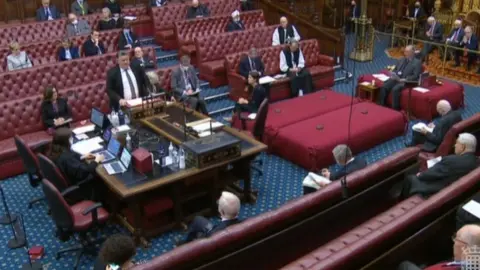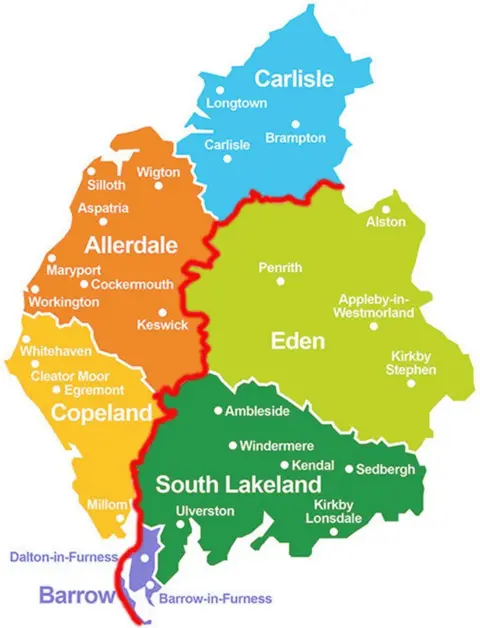Peer voices concerns as Cumbria council restructure is approved
 Parliament Live
Parliament LiveA peer voiced his concerns as final approval was given to local government restructuring in Cumbria.
The House of Lords approved the Structural Change Order on Monday.
It means plans to create two unitary authorities, replacing the county council and six district councils, will go ahead next year.
Cumbrian peer Lord (Roger) Liddle, who also serves as a county councillor, described the reorganisation as "unsustainable".
He told the Lords: "In the short term it involves splitting services which are of vital importance yet fragile, such as social care and child protection, it involves splitting them in the space of 12 months.
"I fear the consequences for the most vulnerable in our society as a result of that.
"These are unnatural communities that the government is imposing on Cumbria and I cannot believe that these new authorities will sustain public support in the longer term."
The local government reorganisation will be complete in Cumbria by 2023, with two new unitary authorities having the decision-making powers of the existing county and borough councils.
 UK Parliament
UK ParliamentCarlisle, Allerdale and Copeland will make up the new Cumberland Council, with Eden, South Lakeland and Barrow-in-Furness forming the new Westmorland and Furness Council.
The Local Democracy Reporting service added the Wigton county councillor also raised concerns about the reorganisation at the Grand Committee stage, telling Lords that industrial Barrow-in-Furness clashes with its rural council partner Eden.
Lord Stephen Greenhalgh, who proposed the motion, told peers: "We debated this at some length in Grand Committee and the points were made by Lord Liddle very eloquently and I've actually since then agreed to meet with Lord Liddle and the current Cumbria County Council leader.
"I will also say that it doesn't need to be that you split the commissioning of adult social care or social services - there are ways, even if you split into two county councils, of commissioning together.
"Where there is a will there is a way and I'm sure the two new leaders of the two new local authorities will seek to build bridges rather than erect walls."
 Cumbria County Council
Cumbria County CouncilCumbria County Council had argued the decision to split-up Cumbria was unlawful.
Its claim was rejected by a High Court judge in January. The decision was then reviewed by another judge who decreed that the government had acted appropriately.
Elections on 5 May will appoint councillors to shadow authorities who will serve alongside existing councils for one year before fully taking over on 1 April 2023.

Follow BBC North East & Cumbria on Twitter, Facebook and Instagram. Send your story ideas to [email protected].
